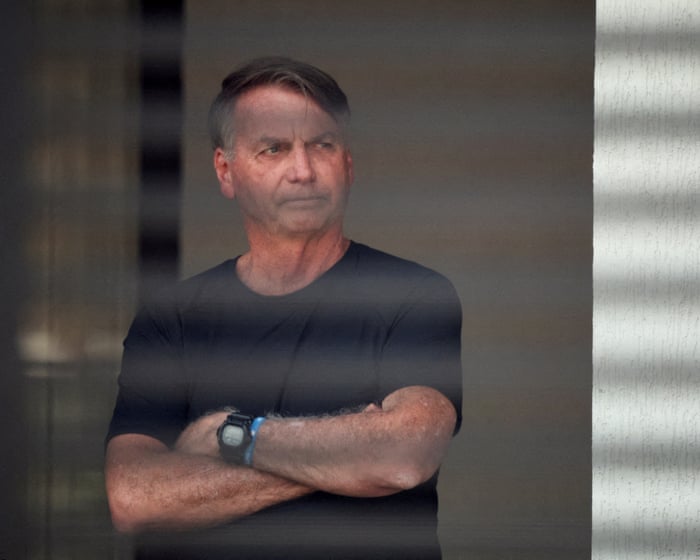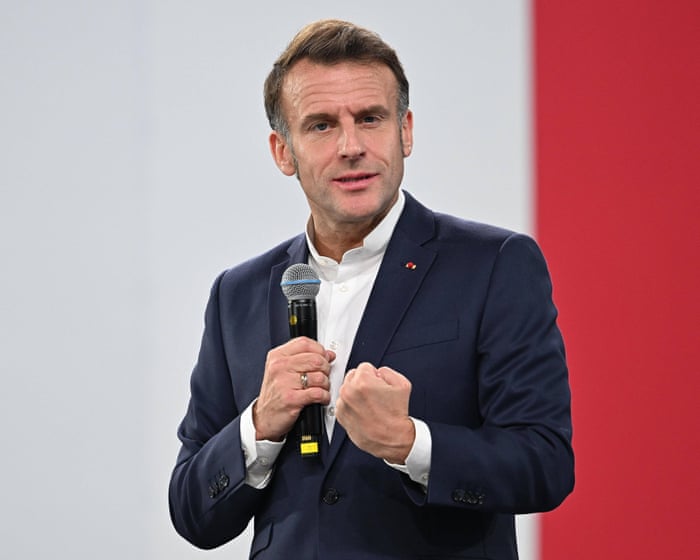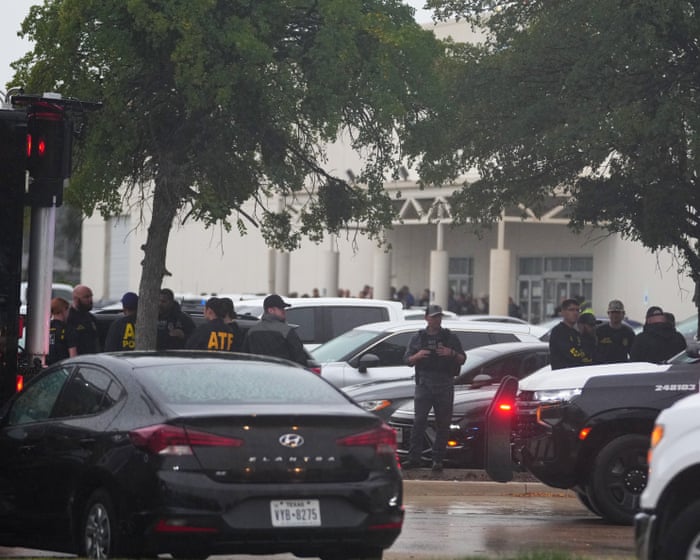Brazil’s former president Jair Bolsonaro and seven of his allies, including four high-ranking military officials, are now on trial for allegedly trying to stage a coup. This marks the first time in Brazilian history that such influential figures have faced justice for attempting to undermine the country’s democracy.
Bolsonaro, a former paratrooper who became a far-right populist and served as president from 2019 to 2023, is accused of orchestrating a failed power grab after losing the 2022 election to leftist candidate Luiz Inácio Lula da Silva. If found guilty, Bolsonaro and his seven alleged co-conspirators—including three army generals and the former head of the navy—could face decades in prison.
On Tuesday morning, the Supreme Court began what is expected to be a two-week trial. Over eight televised hearings from September 2 to 12, five Supreme Court judges will decide their fate.
Brazil has experienced more than a dozen attempted coups since becoming a republic in 1889, after Emperor Pedro II was overthrown. The last successful takeover was in 1964, when U.S.-backed generals ousted then-President João Goulart, claiming to prevent a communist threat and leading to 21 years of harsh military rule.
Historian Danilo Araújo Marques noted that this trial is unprecedented, as no former president or top military leaders have ever been prosecuted for attacking democracy. Marques, who is part of the Projeto República research unit at the Federal University of Minas Gerais, explained that past failed coup attempts were typically met with amnesty. He sees this trial as a sign of Brazil’s maturing democracy, restored in 1985, and believes it could emerge stronger from this test.
On the eve of the trial, former U.S. President Donald Trump attempted to interfere, launching what analysts called an unprecedented pressure campaign that has strained U.S.-Brazil relations. Trump imposed 50% tariffs on Brazilian imports and sanctioned Judge Alexandre de Moraes, who is presiding over the case, claiming Bolsonaro is a victim of a “witch-hunt.” Other Supreme Court justices and Lula officials have had their U.S. visas revoked. Bolsonaro’s son, congressman Eduardo Bolsonaro, has moved to the U.S. to lobby Trump officials on his father’s behalf.
Thomas Shannon, a former U.S. ambassador to Brazil, described Trump’s actions as a “political intervention with an economic cudgel.” Shannon believes Trump aims to derail Bolsonaro’s prosecution, revive his fading political career, and enable him to run against Lula in next year’s election—despite currently being barred from office. However, Shannon doubts this strategy will work, noting that polls show declining support for Bolsonaro and suggesting Trump’s actions may actually harm the former president’s cause.
In contrast, Lula’s support appears to be growing as he positions himself as a patriot defending Brazil from foreign interference.He began wearing a blue, MAGA-style cap with the words: “Brazil belongs to the Brazilians.”
When asked last week if he would be watching his rival’s coup trial, Lula shrugged and said, “I’ve got better things to do.”
Among those on trial alongside Bolsonaro are some of the most prominent figures from his administration: former defense ministers General Walter Braga Netto and General Paulo Sérgio Nogueira de Oliveira; former minister for institutional security General Augusto Heleno; former navy commander Admiral Almir Garnier Santos; former security minister Anderson Torres; former spy chief Alexandre Ramagem; and Bolsonaro’s former aide, Lieutenant Colonel Mauro Cid.
The charges against them involve an alleged plot to stage a pro-Bolsonaro coup in the months between the October 2022 election and the far-right uprising in Brasília on January 8, 2023—just one week after Lula took office.
Bolsonaro denies planning a coup but has admitted looking for “alternative” ways to prevent Lula from assuming power. All other defendants also claim innocence, except for Cid, who has cooperated with investigators as part of a plea deal in hopes of a lighter sentence.
In an editorial marking the trial’s start, the newspaper O Globo wrote that September 2 would be remembered as the day Brazil finally broke its “humiliating tradition” of failing to prosecute presidents and generals who plotted coups.
The conservative O Estado de São Paulo hailed the trial as a “huge civilizatory leap forward,” adding: “Perhaps this is why Trump is using the immense power of the U.S. to attack the Supreme Court and save Bolsonaro from punishment—not out of friendship for the Bolsonaros, but to prevent an example of democratic resistance from taking root in Latin America’s largest nation, which highlights the contrast with how American institutions have bowed to Trumpism.”
Bolsonaro has been under house arrest since early August after the Supreme Court ruled he violated a ban on using social media. Police are stationed outside his mansion over concerns he might try to flee to the nearby U.S. embassy. Earlier this month, police claimed they found a document on a phone seized from the former president suggesting he had planned to escape to Argentina and seek asylum from its right-wing president, Javier Milei.
On Sunday—Brazil’s Independence Day—Bolsonaro’s supporters are expected to rally in major cities to demand his acquittal. Security has been increased around the Supreme Court, presidential palace, and congress to prevent a repeat of the January 8 uprising, when all three buildings were stormed by Bolsonaro supporters.
Marques predicted lively days ahead as Brazil’s 40-year-old democracy reaches another milestone. “This is an important cycle that is closing,” he said, referring to Bolsonaro’s decade-long rise and fall—from an obscure politician who gained prominence during the 2016 impeachment of President Dilma Rousseff, to his election in 2018, and now his potential political downfall.
“But the future is full of surprises,” Marques added. Even if Bolsonaro is convicted and jailed, “new chapters” could still unfold, such as congress approving an amnesty or a future right-wing president granting him a pardon. “Let’s see what the future has in store for us.”
Frequently Asked Questions
Of course Here is a list of FAQs about the legal proceedings against Jair Bolsonaro designed to be clear and accessible
Basic Questions The What and Why
1 What is Jair Bolsonaro being accused of
He is accused of attempting to undermine Brazilian democracy primarily by allegedly plotting a coup to remain in power after losing the 2022 election
2 What specific charges does he face
The formal charges include criminal association attempting to stage a coup détat and abusing political power These are based on his actions before during and after his presidency
3 Why is this happening now
An extensive federal police investigation prompted by the January 8 2023 attacks on government buildings gathered evidence linking his inner circle to a plan to discredit the election and disrupt the peaceful transfer of power
4 What is a coup attempt in this context
It refers to a coordinated plan not with military force but through legal and political maneuvers to create enough chaos and doubt about the elections legitimacy to justify keeping him in power potentially with support from parts of the military and police
5 Is he in jail
As of now no He has not been convicted of any crimes related to these charges He is free but is required to surrender his passport and remain in the country as the legal process continues
Intermediate Questions The How and Whats Next
6 What evidence is there against him
Evidence includes draft decrees to overturn the election meeting minutes where the plan was discussed testimonies from former aides who turned states evidence and text messages among his allies
7 What was his role in the January 8th riots
While he was not present at the riots prosecutors allege he helped create the climate of misinformation and encouraged his supporters to protest the election results which ultimately led to the violent invasion of Congress the Supreme Court and the Presidential Palace
8 Could he go to prison
Yes if he is tried and found guilty on these serious charges he could face a significant prison sentence However the legal process in Brazil is long and complex
9 How is this different from him being ruled ineligible to run for office
His ineligibility was a separate electoral court



